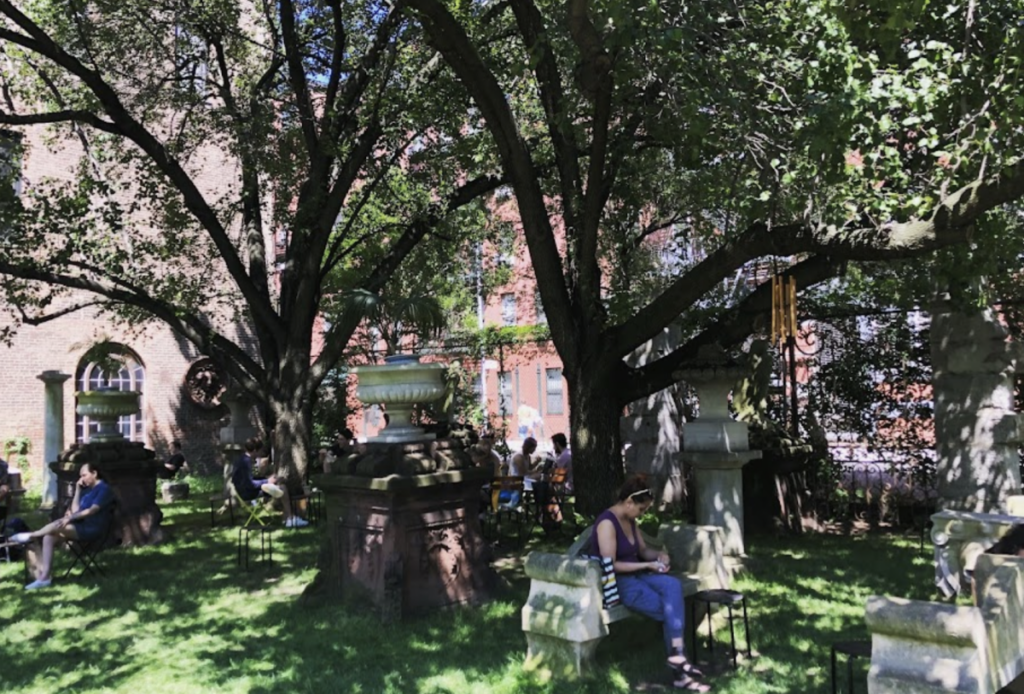
The Elizabeth Street Garden, a communal outdoor space in downtown Manhattan, has been served a two-week eviction notice by New York City’s Department of Housing Preservation and Development after a lengthly legal dispute. The notice comes three months after a legal ruling in July allowing the city to move ahead with developing the plot of land where the small urban haven is located to build affordable housing.
The garden, filled with antique statues, seating, and a stone walkway for Manhattan pedestrians, draws around 150,000 visitors annually, according to a proposal authored by a non-profit named for the garden that oversees its maintenance. Situated on state-owned land, people who live in the surrounding area and preservationists have been fighting to keep the garden intact, proposing the housing be built on an alternative site on Hudson Street or Bowery Street and that the garden be converted to a Conservation Land Trust.
Despite a decade-long effort to save the garden from being turned over to the city’s Department of Housing Preservation and Development, two legal decisions ruled against preservationists, giving the city the go ahead to move ahead with its building plan. In May, a judge ruled against the garden in another eviction case from 2021. In June, the New York State Court of Appeals ruled in favor of the state despite one dissenting legal opinion that the building plan could be unlawful. Judge Jenny Rivera argued the move could potentially put the city out of compliance with New York environmental regulations if the park disappeared.
Joseph Reiver, the garden’s executive director, said in a statement in July that non-profit entity governing the garden and its event program appealed the eviction decision. Reiver took over the garden’s management in 1991 from his father, an antiques dealer who leased the space from the city when it was an abandoned lot, converting it into an outdoor extension of his business, Elizabeth Street Gallery.
The Cultural Landscape Foundation’s (TCLF), an advocacy center in Washington D.C., which starting drawing wide-spread attention to the site in 2018, six years after the city first targeted the park for potential demolition. In a TCLF statement from 2022, the organization stated that since the development deal in 2013, keeping the space “within a hyper-gentrified pocket of the city” was becoming more of a challenge. The organization that operates the park, ESG, Inc., sued the city in 2019 to halt the plan.


